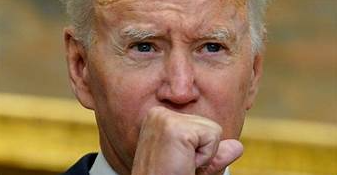Kamala Harris’s competence is a relief, not an inspiration.
When I left the United States this past June for two months to await the approval of my visa, I was relieved not to be in New York. I had heard from friends about the overwhelming humidity, sometimes reaching 90 percent, and how the upcoming U.S. election was beginning to feel imminent—though the atmosphere felt just as stifling from afar. Even outside the country, the election was inescapable. My American boyfriend would read reports on the worsening Biden situation, and though I asked him to refrain from voicing them aloud, I could tell from his groans and furrowed brow when he couldn’t resist. We set a rule: we would limit our daily election-related conversations to just ten minutes. This, however, soon became irrelevant, as events accelerated rapidly, almost as if we were living through the chaotic final scene of a bad Aaron Sorkin drama.
While in Paris, one morning after stepping out of the shower, I overheard my boyfriend say, “I know you don’t want to talk about the news, but Trump has been shot.” A few weeks later, while in Marseille, I was the one who got to tell him that Biden had finally bowed out. Before July, most of the people I knew in New York—aside from a few dedicated political addicts—had barely mentioned the election. When someone from back home in Ireland asked how my friends were feeling about the possibility of a Trump victory, I replied honestly: everyone seemed quietly resigned to its inevitability, to the point that it wasn’t often discussed. The specter of a faltering Biden candidacy loomed so heavily over us that it felt easier to ignore the entire political spectacle while it was still possible.
The small circle of politically active individuals I knew were focused not on election punditry but on their disgust with the Democratic Party’s actions, particularly its continued funding of Israel’s military operations amid the mass killing of Palestinian civilians. On August 13, the U.S. State Department announced approval of a $20 billion weapons package sale to Israel, an issue that further alienated those I knew who had once been invested in the party. Many of them were far more occupied with critiquing the U.S. government’s foreign policy decisions than speculating about the Democrats’ electoral future.
As the months passed, the sense of dread surrounding the 2024 election only deepened. Biden’s candidacy, for many, had become an uncomfortable spectacle, further exacerbated by his party’s foreign policy stances. In the face of such overwhelming resignation and disillusionment, discussions about the election became less about strategy and more about survival, as the left grappled with its own moral and political reckoning. Kamala Harris, despite her competence, didn’t inspire hope but rather relief that at least the Democrats had a somewhat functional backup plan. The very idea that a figure like Harris could be seen as a safe, even comforting, choice only underscored the dire state of American politics.
The American left, in many ways, had come to see Harris less as a beacon of progressive change and more as a pragmatic solution to an ongoing crisis of leadership. In the absence of more inspiring candidates, the focus shifted from ideological inspiration to competence and stability, and that, it seemed, was the best the party could hope for in 2024. But for those disillusioned with the party’s actions on the world stage, this competence felt more like a burden than a promise of renewal. As the election drew nearer, the American left was not looking for inspiration—they were simply hoping to survive the storm.

